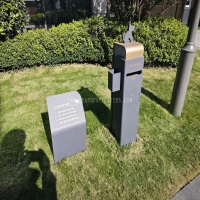Welcome to the website for landscape facilities products and knowledge.
How does eucalyptus resist decay in landscape trash bins?
Eucalyptus wood is renowned for its natural resistance to decay, making it an ideal material for landscape trash bins. This resistance stems from the tree's high oil content, particularly eucalyptol, which possesses strong antibacterial and antifungal properties. These oils act as a natural preservative, preventing the growth of mold, bacteria, and insects that typically cause wood to deteriorate.
In outdoor settings, where trash bins are exposed to moisture and organic waste, eucalyptus's durability ensures longevity. Unlike untreated woods, it doesn’t require chemical preservatives, aligning with eco-friendly practices. Additionally, its tight grain structure minimizes water absorption, further reducing the risk of rot.
Landscape designers increasingly favor eucalyptus for waste management solutions due to its sustainability and low maintenance. By choosing eucalyptus bins, municipalities and homeowners can reduce replacement costs and environmental impact while maintaining hygienic outdoor spaces. This natural decay resistance highlights eucalyptus as a smart choice for durable, sustainable outdoor furniture.
Related search:

Recommendation
Outdoor cat and dog feces trash can; Community pet trash can; Metal multi-color design